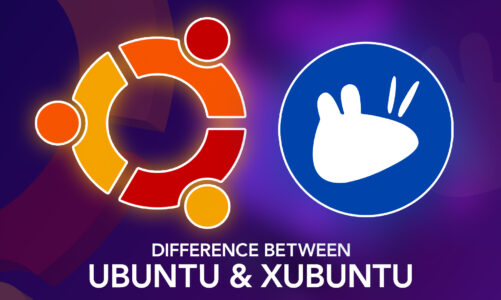As businesses expand their digital footprint, the importance of having a reliable and efficient server has become paramount. And when it comes to choosing an operating system for your server, Linux is the top choice for many.
Choosing the appropriate server operating system is essential for achieving peak performance, robust security, and dependable stability. The right choice can also save you time and money, as well as make it easier to manage and maintain your server.
Let’s take a look at some of the best Linux server operating systems available today and save you time and effort to do the research.
Top Linux Server OS Options
1: Ubuntu Server
Ubuntu Server, a free and open-source operating system based on Debian, has become a top Linux server OS option due to its user-friendliness, extensive support from Canonical, vast software repository, and robust community. Ideal for organizations of all sizes, Ubuntu Server offers a seamless experience across various environments, from physical servers to virtual machines and the cloud. Its adaptability, commitment to ongoing development, and regular security updates make it a reliable and secure choice for server administrators worldwide.
Features and Benefits of the Ubuntu Server
- Regular updates and releases every six months
- LTS (Long Term Support) versions are released every two years, offering five years of continuous support
- A large package repository with access to the latest software
- Extensive community support and detailed documentation
2: Red Hat Enterprise Linux (RHEL)
Red Hat Enterprise Linux (RHEL) stands out as a leading server operating system option thanks to its outstanding stability, dependability, and security capabilities. As an enterprise-grade, open-source platform developed by Red Hat Inc., RHEL offers comprehensive support, ensuring businesses have access to expert assistance and timely updates.
Features and Benefits of RHEL
- Commercial support from Red Hat
- Extensive security features and certifications
- 10-year lifecycle with regular updates
- Integration with Red Hat’s management and monitoring tools
3: Debian
Debian, a renowned Linux distribution first released in 1993, stands as a top server operating system option due to its stability, security, and versatility. Focused on long-term support, Debian offers minimal disruptions and maximum uptime alongside robust security features and timely updates. Its extensive precompiled software packages, compatibility with various server architectures, and vibrant community with extensive documentation make Debian an attractive, cost-effective choice for businesses and organizations seeking a reliable and customizable Linux server OS.
Features and Benefits of Debian
- Strong focus on stability and security
- A large package repository with over 50,000 packages
- Long-term support with extended security updates
- The active development community and comprehensive documentation
4: SUSE Linux Enterprise Server (SLES)
SUSE Linux Enterprise Server (SLES) is a top Linux server OS option due to its stability, security, and scalability across various hardware architectures and deployment environments. With its user-friendly YaST configuration tool, extensive long-term support, and compatibility with diverse platforms and applications, SLES offers a versatile and customizable platform for organizations of all sizes.
Features and Benefits of SLES
- Commercial support from SUSE
- Long-term support with up to 13 years of lifecycle
- Robust security features and certifications
- Integration with SUSE’s management and monitoring tools
5: CentOS
CentOS, a free, open-source Linux distribution derived from Red Hat Enterprise Linux (RHEL) sources, is considered a top server operating system option due to its reliability, security, cost-effectiveness, extensive community support, and wide compatibility.
Built on the stable foundation of RHEL, CentOS offers a trustworthy platform for mission-critical applications and server deployments while also benefiting from RHEL’s robust security features and updates. Its cost-effective, open-source nature and compatibility with numerous software and hardware configurations make CentOS a popular choice for organizations without compromising on performance.
Features and Benefits of CentOS
- Drawing from the foundations of Red Hat Enterprise Linux (RHEL), it provides enterprise-grade stability
- Long-term support with a 10-year lifecycle
- Extensive package repository
- Strong community support and extensive documentation
6: Fedora Server
Fedora Server stands out as a top Linux server OS option due to its cutting-edge technology, robust package management with DNF, enhanced security features like SELinux, and a vibrant community providing support and resources. Additionally, its modular infrastructure enables users to customize their systems by running different software components simultaneously. These advantages make Fedora Server an ideal choice for various server roles, delivering a reliable, efficient, and secure experience for both administrators and end-users alike.
Features and Benefits of the Fedora Server
- Sponsored by Red Hat, ensuring quality and stability
- With a brief release cycle (roughly every six months), it offers access to cutting-edge features and enhancements
- Modular system, allowing users to customize and optimize their server environment
- Active community support and extensive documentation
Conclusion
Choosing the best Linux server OS depends on your specific needs, requirements and specific use cases. While we’ve discussed some popular choices like Ubuntu, CentOS, and Debian, it’s essential to remember that the Linux ecosystem is vast and diverse, with countless other distributions waiting to be explored and put to use. Assess your server requirements, compare features and support, and choose the distribution that best aligns with your needs.



